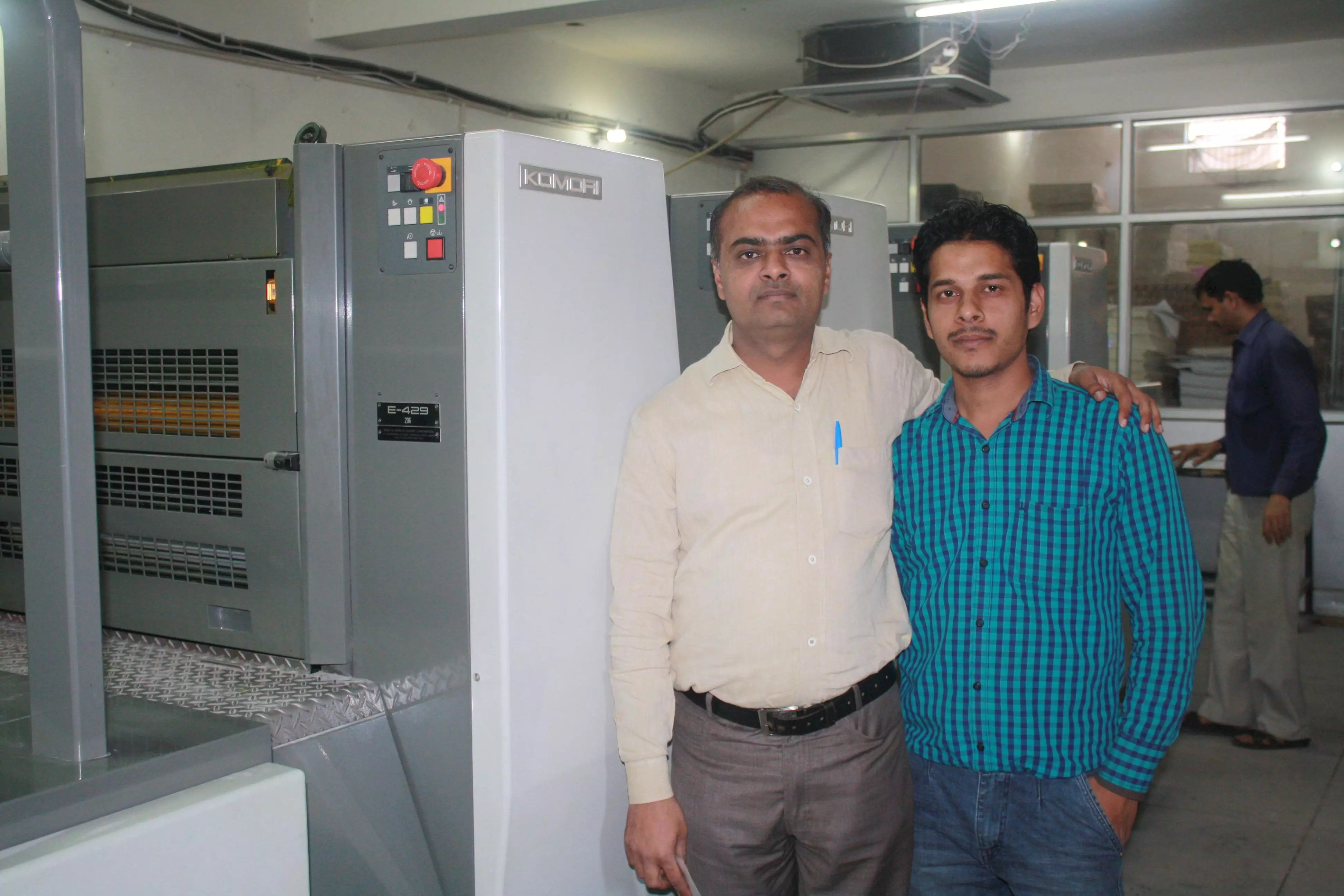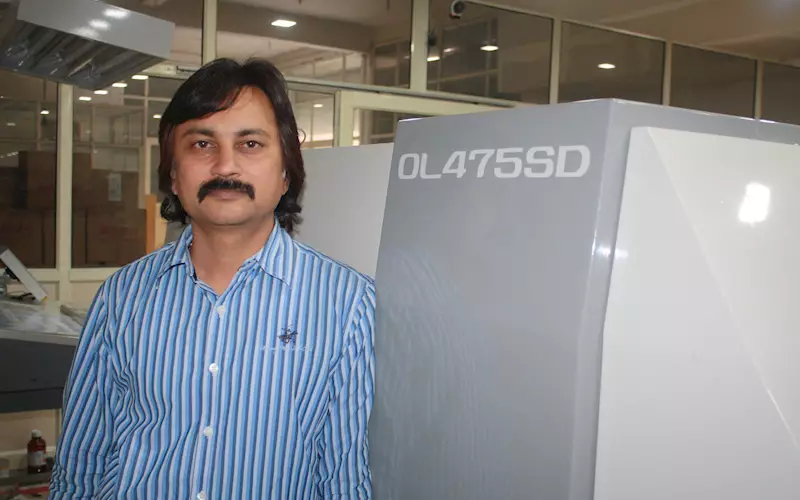Until recently, Meerut-based Laser Point Multicolour Offset was using a pre-owned four-colour press for its commercial and book production jobs. As work started to pile up, there was a need for an upgrade. That’s when Deepak Goyal, proprietor, Laser Point, came in contact with the team from Insight.

“They guided us on how can we upgrade ourselves with a brand new printing press and on the kind of benefits we will get after the upgradation,” says Goyal. The result? The book printer invested in a Komori press in 2014.
It was, however, not an easy task. Goyal agrees that upgradation was not a bed of roses for him as the company’s financial condition was not that strong. But, he finally took the decision and installed the press. Things have changed markedly since, as he has started getting more work and in turn, is now making more money. “Most of our work comes from book publishers; the problem of delayed payments persist late but they paywell,” says Goyal.
In the recent years, Insight, the Indian representative of the Japanese manufacturer Komori, seems to have cracked the code of how to break into tier-two, tier-three cities, with a planned approached. It sold three brand-new Komori presses in Meerut in 2014, and recently, two more machines are being installed in the traditional hub of book printing and one more ordered by New King Offset.
Sudhakar Mudranalya, New King Offset and Hi Choice are the three new customers for Komori in the city. Insight has sold six Komori printing presses in a time span of 12 months.
Ajay Agarwal of Insight says, “We have always maintained that investment in a new press is a wiser decision than investing in the press of the 90s. The efficiency and production of a new press is almost double than that of an old press, quality is much better and running cost and paper waste are much lesser. Just one or two new machine installations can alter the dynamics for all the rest in tier-II cities as the old press owners cannot compete and loose out as they cannot deliver quality as well as quantity. Meerut has seen a complete changeover of mindset from pre-owned to new.”
The traditional hub of book printing, Meerut’s love affair with high-end brand new printing presses started a few years ago when the city got two brand-new Heidelberg printing presses at SK Offset and Agarwal Print Media. The city, which played an important role in India’s first fight for independence, also has a new Sakurai press at Nageen Prakashan.
Soon, Ryobi will make a debut in Meerut. The printing press has been shipped from Japan to the city.
The story of Shree Siddh Publishing Solutions, another user of Komori, and a first generation printer is not very different from Laser Point. It opted for the press along with a pre-press kit.

Anuj Jain, the second generation of a well-established family-owned paper merchant, says, “The shift from a paper trader to a printer was a gradual process. We deal in the most expensive raw material for printing. Thus, we planned to enter into the field. We found printing to be a good business, as far as the margin is concerned, but our engagement has increased manifold and we have to work round-the-clock.”
Jain runs the company, Shree Siddh, with his brother Tanuj and his father Kanwar Sen Jain.
Apart from the Komori, the company also invested in a Kodak CTP. “We wanted to start with new equipment and Komori’s compact size and business deal suited us, well,” Tanuj Jain adds.
The company works for multiple book publication houses in the city and as well as in other states. As the production demands are on the rise, the Jain brothers indicate that they may commission another press soon.

Nageen Prakshan, one of the biggest books printing facilities in the city, has opted for a similar expansion and invested in an array of equipment, including a Komori machine.
Mohit Jain, the second generation of the family owned business and director, Nageen Prakashan, says, “Print production demand is increasing rapidly and we have to deliver fast, best and economically. We found that a new equipment is the only solution to meet those demands.”
But why Komori? Jain says Komori is a suitable printing press for the company for two reasons – size (the machine’s size and printable sheet size) and cost. He recently also visited the Komori factory in Japan.
Jain has a fully equipped setup for screen printing, web offset printing and books binding. He also has a collection of more than 650 hand-painted paintings and planning to print those as well. Nageen is an established name in the printing of drawing books.
 “They guided us on how can we upgrade ourselves with a brand new printing press and on the kind of benefits we will get after the upgradation,” says Goyal. The result? The book printer invested in a Komori press in 2014.
“They guided us on how can we upgrade ourselves with a brand new printing press and on the kind of benefits we will get after the upgradation,” says Goyal. The result? The book printer invested in a Komori press in 2014. Anuj Jain, the second generation of a well-established family-owned paper merchant, says, “The shift from a paper trader to a printer was a gradual process. We deal in the most expensive raw material for printing. Thus, we planned to enter into the field. We found printing to be a good business, as far as the margin is concerned, but our engagement has increased manifold and we have to work round-the-clock.”
Anuj Jain, the second generation of a well-established family-owned paper merchant, says, “The shift from a paper trader to a printer was a gradual process. We deal in the most expensive raw material for printing. Thus, we planned to enter into the field. We found printing to be a good business, as far as the margin is concerned, but our engagement has increased manifold and we have to work round-the-clock.” Nageen Prakshan, one of the biggest books printing facilities in the city, has opted for a similar expansion and invested in an array of equipment, including a Komori machine.
Nageen Prakshan, one of the biggest books printing facilities in the city, has opted for a similar expansion and invested in an array of equipment, including a Komori machine.











 See All
See All